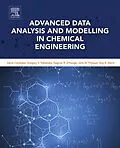Advanced Data Analysis and Modeling in Chemical Engineering provides the mathematical foundations of different areas of chemical engineering and describes typical applications. The book presents the key areas of chemical engineering, their mathematical foundations, and corresponding modeling techniques. Modern industrial production is based on solid scientific methods, many of which are part of chemical engineering. To produce new substances or materials, engineers must devise special reactors and procedures, while also observing stringent safety requirements and striving to optimize the efficiency jointly in economic and ecological terms. In chemical engineering, mathematical methods are considered to be driving forces of many innovations in material design and process development. - Presents the main mathematical problems and models of chemical engineering and provides the reader with contemporary methods and tools to solve them - Summarizes in a clear and straightforward way, the contemporary trends in the interaction between mathematics and chemical engineering vital to chemical engineers in their daily work - Includes classical analytical methods, computational methods, and methods of symbolic computation - Covers the latest cutting edge computational methods, like symbolic computational methods
Autorentext
Denis Constales is an applied mathematician who has been working in chemical engineering and statistics for the past 12 years, specializing in diffusion problems, parameter estimation and inverse problems, chemical kinetics, reaction mechanism identification, and nearly all aspects of the Temporal Analysis of Products method.
Klappentext
Advanced Data Analysis and Modeling in Chemical Engineering provides the mathematical foundations of different areas of chemical engineering and describes typical applications. The book presents the key areas of chemical engineering, their mathematical foundations, and corresponding modeling techniques.
Modern industrial production is based on solid scientific methods, many of which are part of chemical engineering. To produce new substances or materials, engineers must devise special reactors and procedures, while also observing stringent safety requirements and striving to optimize the efficiency jointly in economic and ecological terms. In chemical engineering, mathematical methods are considered to be driving forces of many innovations in material design and process development.
- Presents the main mathematical problems and models of chemical engineering and provides the reader with contemporary methods and tools to solve them
- Summarizes in a clear and straightforward way, the contemporary trends in the interaction between mathematics and chemical engineering vital to chemical engineers in their daily work
- Includes classical analytical methods, computational methods, and methods of symbolic computation
- Covers the latest cutting edge computational methods, like symbolic computational methods
Inhalt
1. Introduction 2. Chemical Composition and Structure: Linear Algebra 3. Complex Reactions: Kinetics and Mechanisms - Ordinary Differential Equations - Graph Theory 4. Physicochemical Principles of Simplification of Complex Models 5. Physicochemical Devices and Reactors 6. Thermodynamics 7. Stability of Chemical Reaction System 8. Optimization of Multizone Configurations 9. Experimental Data Analysis: Data Processing and Regression 10. Polymers: Design and Production 11. Advanced Theoretical Analysis in Chemical Engineering: Computer Algebra and Symbolic Calculations
